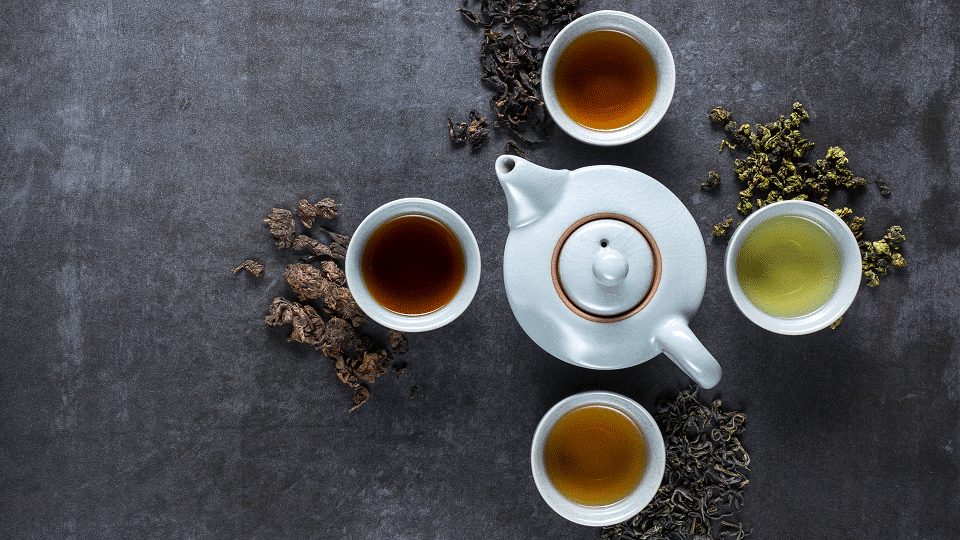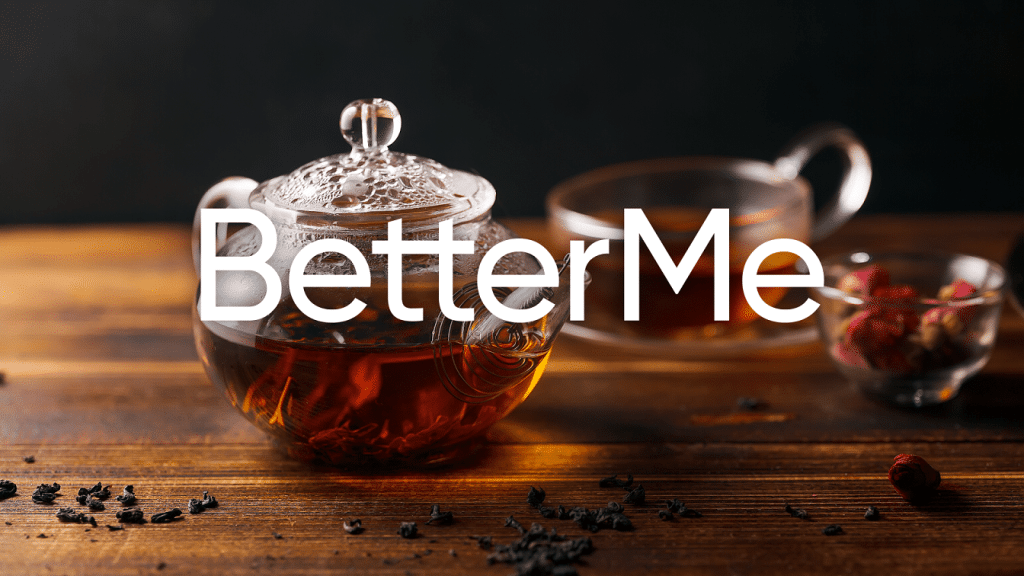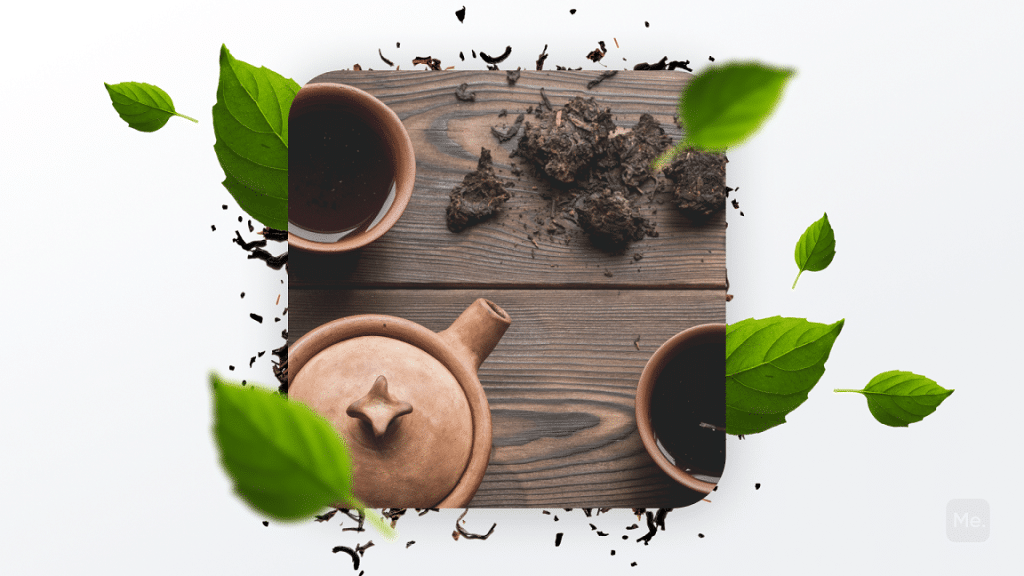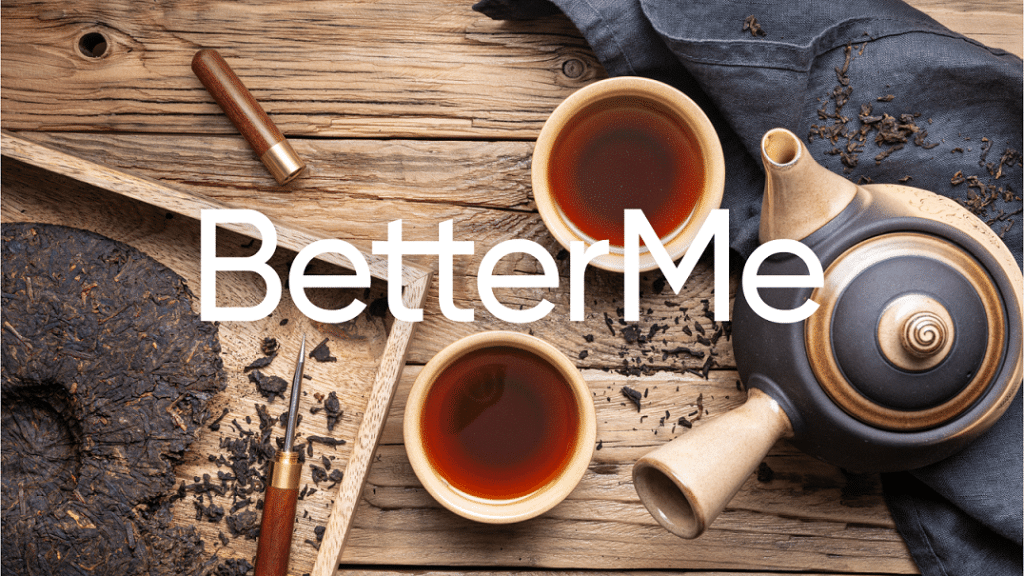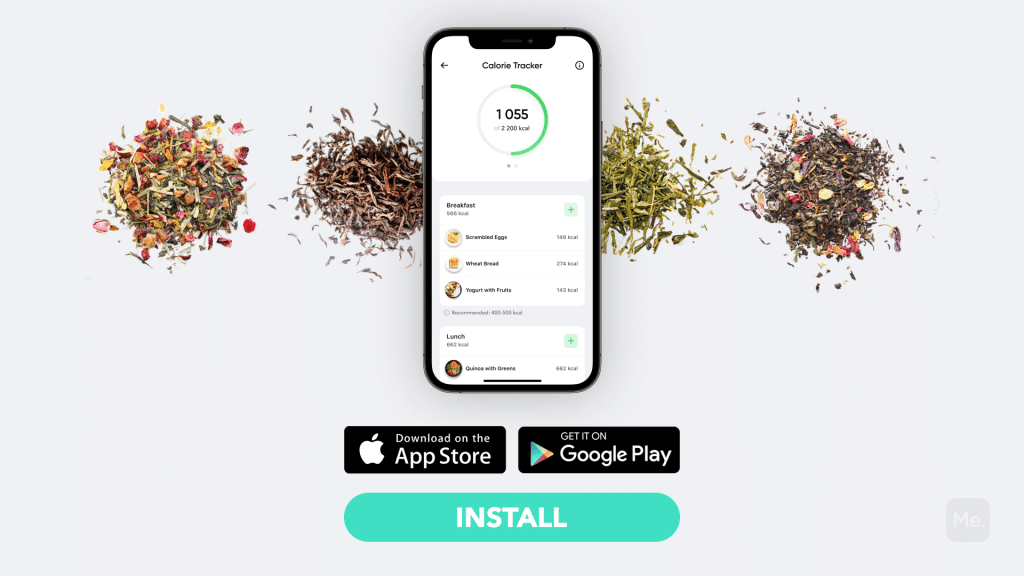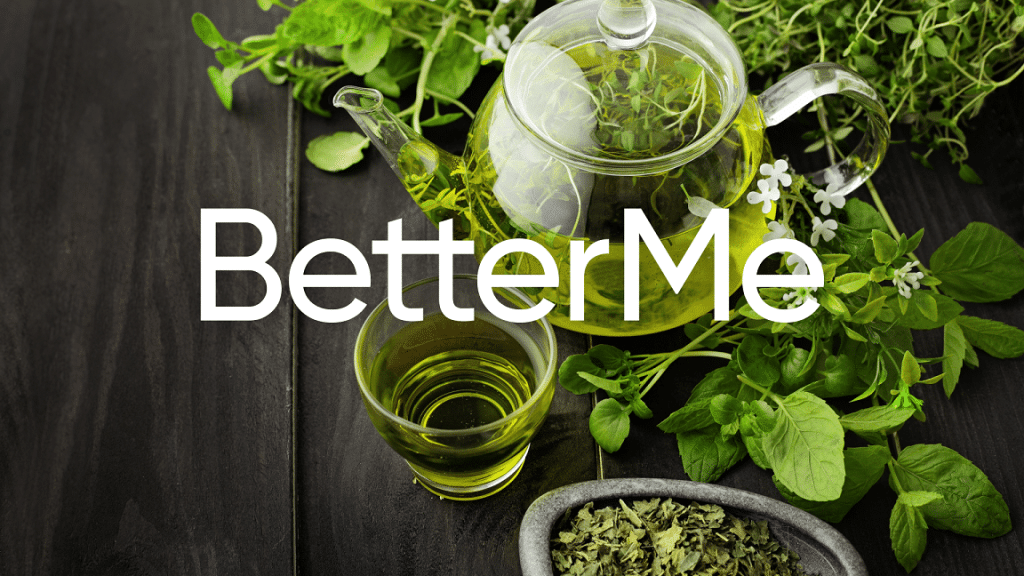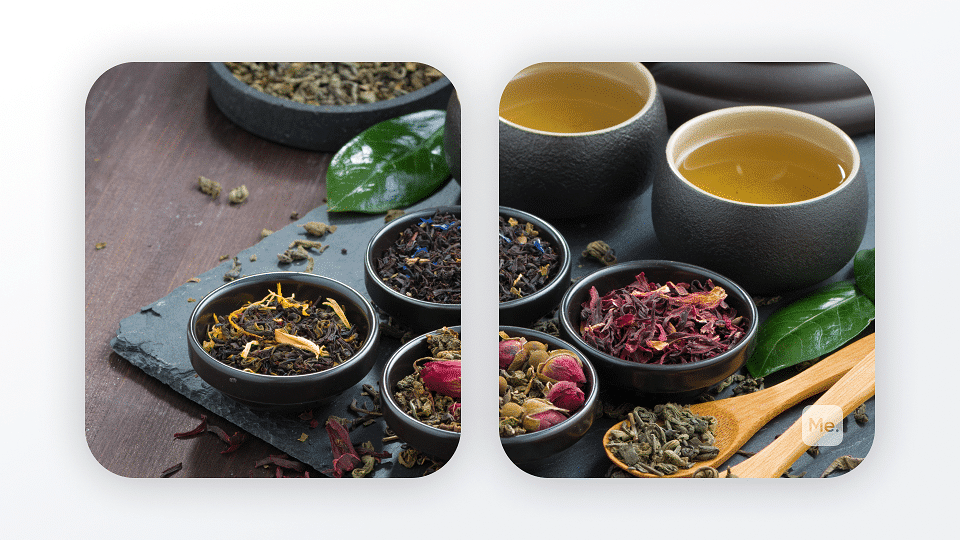Losing weight is an uphill battle for many people. Fad diets and ineffective exercise routines may help you lose a few pounds, but they don’t work in the long run. The key to losing weight and keeping it off for good lies in making small long-term changes to your diet and lifestyle – not drastic short-lived ones – that will give you results without depriving yourself of essential nutrients or feeling hungry all the time. One change you can make to your diet is replacing unhealthy, sugar-laden beverages with weight loss teas. These are beverages that not only have been said to boost weight loss but also contain high levels of healthy compounds. Try these six teas if you want to lose weight and keep it off for good.
Teas For Weight Loss
Green Tea
Green tea is a type of tea made from the Camellia Sinensis plant, and it has been used as a natural remedy for centuries. It can be found in the form of whole leaves or as an extract. It’s also available as oil, ointment, capsules or tablets, and even in liquid form. There are many health benefits of green tea, one of which is weight loss.
Green tea contains compounds that may increase the rate of metabolism for fats and carbohydrates (2). These are caffeine, polyphenols, and catechins. Caffeine may raise the rate of metabolism. Meanwhile, catechins may speed up the body’s ability to burn fat. It also boosts the rate of thermogenesis, which is a process in cells that creates heat and energy from stored nutrients such as carbohydrates and fats.
The polyphenol EGCG (epigallocatechin gallate) is believed to be the major chemical responsible for the weight loss effects of green tea. It may work by increasing thermogenesis, which produces heat by burning energy for body functions (6). Thermogenesis increases metabolism rates and speeds up fat oxidation, which will help with weight loss. EGCG may also help improve glucose tolerance and have antidiabetic effects.
Is Green Tea Safe?
When it comes to weight loss supplements and medications, there is always a safety concern. However, there have been many studies done on green tea extract and its ability to aid with weight loss.
Not only is it safe for most people to take, but it also has just a few side effects other than mild headaches or nausea. If you are sensitive to caffeine, approach green tea as you would any other caffeinated beverage. The polyphenols in green tea can decrease the bioavailability of iron, so it may be best to drink green tea separately from mealtimes. Those with kidney disease should also be aware that green tea can be contaminated with aluminum.
You should not take green tea pills if you are pregnant or breastfeeding, as the chemicals in the medicine may pass through your milk and harm your baby (2). Pregnant and lactating women should also not drink more than one or two cups of green tea per day because of the caffeine content.
Most mainstream experts agree that 3 to 6 cups of green tea a day is safe and may promote weight loss. If you don’t like drinking green tea, pills are an easy alternative solution.
However, it’s best to consult a doctor before beginning any new supplement regimen. This will ensure that you do not have any health conditions that may take a turn for the worse should you start taking green tea pills. For best results, use green tea along with regular exercise and other healthy lifestyle practices.
Read More: Detox Tea Facts, Health Benefits And Side Effects
Black Tea
Black tea might be an effective tool for weight loss and decreasing body fat. The caffeine in black tea increases metabolism, while its polyphenols may inhibit fat and sugar absorption while also influencing lipid metabolism in ways that prevent obesity (13).
Black tea also stimulates thermogenesis, a process by which your body burns its stored energy instead of food calories. This should lead to decreased calorie intake and increased calorie burn, leading to weight loss over time.
Finally, black tea may help curb appetite because it contains natural compounds called polyphenols that act as antioxidants in the brain and promote feelings of fullness after eating or drinking them. These properties make this beverage one of the most powerful tools available for burning fat.
Is Black Tea Safe?
Black tea is safe in moderation, but it contains caffeine. This stimulant can cause negative side effects in people who are especially sensitive to its effects or when consumed in high doses.
Some of the possible negative consequences of drinking black tea are insomnia, poor sleep quality, irritability, nervousness, hypertension (high blood pressure), and irregular heartbeat. Black tea has also been known to reduce the absorption of iron from food and may cause stomach discomfort when consumed in excess (3).
Parents should be wary of giving black tea to their young children – also since it can result in negative side effects such as nausea and vomiting.
The optimal amount of black tea to drink for weight loss purposes is between 3 and 5 cups per day. Higher or lower amounts are less effective but still safe if consumed in moderation. Pregnant and lactating women should limit their intake of caffeine based on their obstetrician’s advice.
Black tea drinkers might not only slim down more quickly, but they could also decrease their risk for obesity-related diseases such as high cholesterol, heart disease, stroke, and diabetes.
Black tea also contains antioxidants that fight infections and protect against sun damage and wrinkles. These properties make this weight loss aid a good choice for people looking to improve their health and appearance at the same time.
Pu-erh Tea
Pu-erh tea is a fermented, dark-colored type of tea from the Yunnan province in China (11). It has a strong and distinctive flavor. Puerh is made from either the large-leafed wine tea plant (Camellia sinensis) or the smaller-leaved tea plant.
There are both green and black varieties of pu-erh tea, but products containing pu-erh have been primarily marketed as black tea in recent years.
Pu-erh is famous for its unusual taste and smell, which can best be described as earthy and pungent. It has a higher concentration of theophylline alkaloids than other teas,9 which may enhance the ability to focus attention or increase alertness. However, this effect is probably not noticeable at the pu-erh tea dosage for weight loss.
Pu-erh tea is a good choice for those who want to lose weight because it contains a low-calorie content and may help increase metabolism. In addition, pu’erh might reduce appetite by activating receptors in the stomach that signal the brain to feel full. This helps keep hunger pangs at bay, allowing dieters to lose weight more efficiently and effectively (17).
Pu-erh tea has recently gained popularity as a health food because of its reported benefits in enhancing glucose tolerance and reducing insulin resistance. These healthful properties of pu-erh tea are thought to result from an antioxidant called epigallocatechin gallate (EGCG) (8).
Reasons why BetterMe is a safe bet: a wide range of calorie-blasting workouts, finger-licking recipes, 24/7 support, challenges that’ll keep you on your best game, and that just scratches the surface! Start using our app and watch the magic happen.
Is Pu-erh Tea Safe?
Pu’erh contains caffeine, so it may not be safe for everyone. People who are sensitive to this stimulant should avoid drinking pu-erh tea– or any type of caffeinated beverages at all.
A moderate amount of pu-erh tea is considered to be up to 4 cups per day. More than that is considered a high dose and may not be safe, particularly due to its caffeine content (16). This amount will vary according to the caffeine content of the pu-erh, which can range from 20 mg to 40 mg.
Pu’erh tea is not recommended for those who are sensitive to caffeine or any other stimulant. Women who are pregnant or breastfeeding should also avoid this tea or limit caffeine intake as advised by their obstetrician.
It is crucial to keep in mind that the medicinal properties of pu-erh are derived from entire leaves, not just their powder or extract. This means that drinking pu-erh whole leaf tea will have a greater effect on weight loss than capsules or bags of pre-processed powders.
However, the effects of pu-erh are most noticeable when consumed over a long period. Pu’erh is not necessarily going to work for people who are trying to lose weight quickly.
Oolong Tea
Oolong tea is a type of tea that comes from China. It comes from the same plant as green and black tea but is semi-oxidized during processing. It has plant compounds called polyphenols, which are also found in other types of tea. The polyphenols in oolong tea may promote weight loss by increasing metabolism and burning more calories than drinking water or other high-calorie drinks like milk or juice.
Oolong tea contains caffeine, which helps with energy levels as well as suppressing appetite. This means it’s an excellent drink for people who want to lose weight quickly without giving up the foods they enjoy.
Oolong tea has also been shown to decrease in animals (12). Studies show that oolong tea may fight obesity by stimulating the central nervous system (CNS). The CNS controls how energy (calories) is used. When it’s stimulated, more calories are burned and weight is reduced.
Oolong tea may also increase thermogenesis or the production of heat within the body from normal metabolism or exercise (15). This means your body may burn more calories due to increased metabolic activity after you drink this tea. If combined with regular exercise, oolong tea might help you lose excess weight and keep it off.
Is Oolong Tea Safe?
Oolong tea is safe for consumption, however, it should be consumed in moderation. Drinking too much oolong tea can cause side effects like nausea, irritability, and insomnia. The caffeine found in oolong tea can be dangerous to pregnant women or people who are caffeine-sensitive (they get headaches or other symptoms when they consume caffeinated products) (14).
It’s also important to note that while studies show that the polyphenols in oolong tea may boost metabolism and help with weight loss, long-term safety studies haven’t been done on this kind of tea. Until more research is done on the health benefits of drinking oolong regularly, do not drink more than three cups per day.
It’s best to drink a moderate amount of the beverage per day; too much of it may trigger negative side effects. Oolong tea can be consumed hot or iced (or mixed with other teas or drinks like lemonade).
Read More: Dandelion Tea Detox: Benefits, Side Effects, And How To Boost Your Body’s Detox Functions
White Tea
Like green and black teas, white tea is also made from the leaves of the Camellia sinensis plant. In the case of white tea, these are young leaves that have undergone less oxidation, which is considered a step in the processing of black tea.
White tea undergoes minimal processing to avoid losing its quality and flavor. It contains antioxidants known as catechins, the same type found in green tea. This has resulted in white tea being labeled as one of the top ten superfoods due to its antioxidant content (9).
Another benefit of drinking white tea is that it may help you lose weight by increasing your rate of metabolism, thus, helping you burn more calories throughout the day (19). The polyphenols present in this drink may also help increase bone mass and protect against various diseases (9).
To obtain the full health benefits of white tea, it is recommended to drink two or three cups a day. You can also add fresh ginger or mint leaves to your tea, as these components will enhance its flavor.
White tea should be stored away from heat sources, sunlight, and air in an airtight container such as a sealed glass jar. It should be placed within the fridge after you open it.
Because of its minimal processing, white tea has a higher risk of oxidation and more quickly loses its quality and aroma if kept at room temperature for too long; hence, why we advise storing it in the fridge after opening.
BetterMe app will provide you with a host of fat-frying fitness routines that’ll scare the extra pounds away and turn your body into a masterpiece! Get your life moving in the right direction with BetterMe!
Is White Tea Safe?
White tea is considered safe to drink, but it may cause problems for those who suffer from caffeine sensitivity. It does contain caffeine, so avoid drinking it before bedtime if you have trouble sleeping (4).
Because white tea contains caffeine and high levels of fluoride, pregnant women should not drink more than a cup a day. White tea can also contribute to the staining of teeth, especially if consumed daily. However, the overall benefits of the plant’s catechins outweigh its possible negative effects.
Herbal Teas
The many different types of herbal teas provide a variety for all tastes and preferences. The most popular ones are rosehip, rooibos, echinacea, peppermint, chamomile, and raspberry leaf. Among these are some that have been used beneficially for weight loss.
Herbal teas are quite popular in weight loss programs because they are healthy alternatives to tea, coffee, and sodas. Some of these herbal weight loss teas may have a positive effect on metabolism and are said to help with burning fat more efficiently (10).
Herbs like guarana and yerba mate contain caffeine, which may further increase the breakdown of stored fats to provide you with energy while working out (5). Other herbs like ginseng may help tone your muscles naturally, along with a progressive strength training routine and reduce muscle damage (7).
Many herbal teas are also said to help decrease the intake of sugary drinks and soda, thus helping prevent unwanted weight gain (18). Some of these herbs come from Asian countries, such as China and Japan, and include ingredients like konjac root and Garcinia Cambogia.
These types of herbal teas can be found in capsules or powder form, but it is also possible to prepare them using the leaves of the plant, which you can purchase online or in local organic markets. Some appetite-suppressing herbal teas provide caffeine, such as guarana seeds, that may further increase the body’s ability to break down stored fat (5).
Are Herbal Teas Safe?
Many herbal teas are not only safe, but they also provide a lot of benefits for your health and well-being. If you choose to drink them, it is sometimes recommended that you use organic products since this will reduce your risk of ingesting harmful chemicals or pesticides. Don’t drink herbal teas too much, and be aware of any caffeine content. 1 to 3 cups a day should be enough (1).
Some herbal weight-loss teas, such as those found in the Asian culture, have been in use for centuries due to their medicinal properties. As with any type of tea, you must keep them in a cool dry place away from the sun, which will prevent your tea’s potency from deteriorating over time.
If you suffer from diabetes or other illnesses or are taking any medications, it is recommended that you visit your physician before taking any type of herbal tea to discuss possible precautions and interactions before consumption. Pregnant women should not drink herbal teas or take herbal supplements without first discussing with their OB/GYN – many of them are not considered safe during pregnancy.
The Bottom Line
Tea that helps you lose weight might help boost your metabolism and burn fat but keep in mind that diet and exercise are still needed along with these healthy alternatives. Each type of tea provides its benefits for your health and well-being, so keep trying out new types until you find the one that works best for you. Drink these in moderation because too much of anything is never a good idea.
Get your personalized
meal plan!
DISCLAIMER:
This article is intended for general informational purposes only and does not address individual circumstances. It is not a substitute for professional advice or help and should not be relied on to make decisions of any kind. Any action you take upon the information presented in this article is strictly at your own risk and responsibility!
SOURCES:
- A billion cups: The diversity, traditional uses, safety issues and potential of Chinese herbal teas (2018, pubmed.ncbi.nlm.nih.gov)
- Beneficial effects of green tea: A literature review (2010, cmjournal.biomedcentral.com)
- Black tea – helpful or harmful? A review of the evidence | European Journal of Clinical Nutrition (2006, nature.com)
- Caffeine Effects on Sleep Taken 0, 3, or 6 Hours before Going to Bed (2013, jcsm.aasm.org)
- Dietary Supplements for Weight Loss (2021, ods.od.nih.gov)
- Effects of epigallocatechin-3-gallate on thermogenesis and mitochondrial biogenesis in brown adipose tissues of diet-induced obese mice (2017, ncbi.nlm.nih.gov)
- Effects of Panax ginseng supplementation on muscle damage and inflammation after uphill treadmill running in humans (2011, pubmed.ncbi.nlm.nih.gov)
- Factors affecting the levels of tea polyphenols and caffeine in tea leaves (2003, pubmed.ncbi.nlm.nih.gov)
- Healthy properties of green and white teas: an update (2017, pubmed.ncbi.nlm.nih.gov)
- Herbal Teas and their Health Benefits: A Scoping Review (2019, pubmed.ncbi.nlm.nih.gov)
- History of Pu’er Tea and comparative study for the effect of its various extracts on lipid-lowering diet (2014, pubmed.ncbi.nlm.nih.gov)
- Hypocholesterolemic effects of Chinese tea (1997, pubmed.ncbi.nlm.nih.gov)
- Mechanisms of Body Weight Reduction by Black Tea Polyphenols (2016, mdpi.com)
- Oolong Tea (n.d., webmd.com)
- Oolong Tea Increases Metabolic Rate and Fat Oxidation in Men (2001, academic.oup.com)
- Pu-Erh Tea (n.d., webmd.com)
- Reduction of body fat and improved lipid profile associated with daily consumption of a Puer tea extract in a hyperlipidemic population: a randomized placebo-controlled trial (2016, ncbi.nlm.nih.gov)
- Using Herbal Remedies to Maintain Optimal Weight (2011, ncbi.nlm.nih.gov)
- White Tea extract induces lipolytic activity and inhibits adipogenesis in human subcutaneous (pre)-adipocytes – Nutrition & Metabolism (2009, nutritionandmetabolism.biomedcentral.com)
